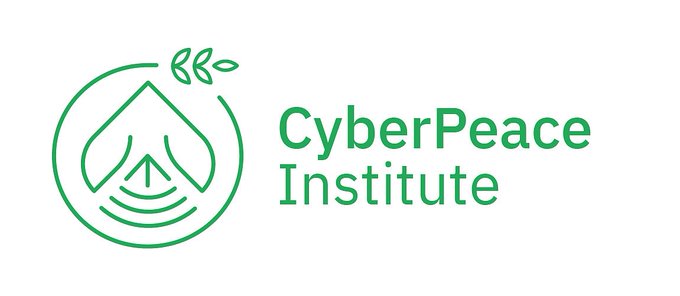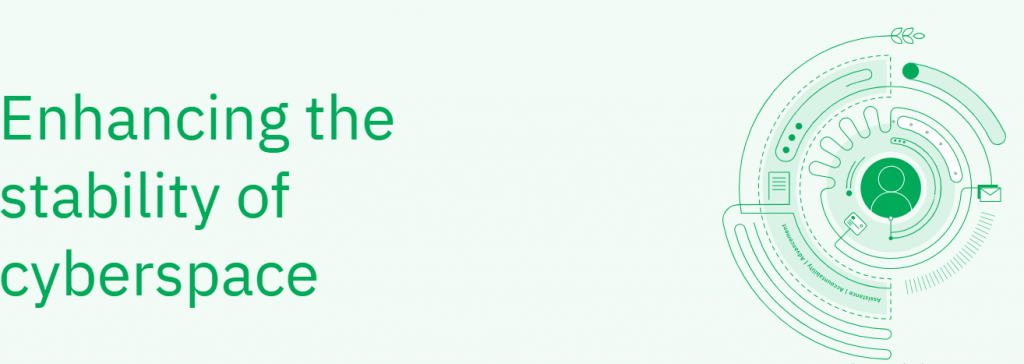The CyberPeace Institute, a new initiative planning to protect vulnerable groups across the world from hackers, has received funding from Microsoft Corp, Mastercard Inc and the Hewlett Foundation.


The institute which will be launched on September 26, 2019, will be headquartered in Geneva with a charge to stop the internet from becoming “weaponised by collaborating with the international community.”
Marietje Schaake, the president of CyberPeace Institute explained that the organisation plans to employ more than 20 staff in its first year and work with collaborators to respond to major cyberattacks that inflict harm on people, like those that shut down hospitals and cripple businesses.
She added that the institute wants to create transparency and accountability on cyber-crime.
“We read about cyberattacks every day and people frown and worry, but there’s little understanding of the impact on civilians. We want to bring more transparency and accountability, and we want to focus on helping civilians who may have experienced harm or become the collateral damage of the cyberattack.”
Marietje Schaake, President of CyberPeace Institute
The CyberPeace Institute has an eight-member executive board and a 14-member advisory board, which include technical and legal experts as well as human rights advocates.
According to CEO CyberPeace, Stéphane Duguin, the institute will work to influence global policy and international laws on cyberattacks. It hopes to promote “responsible behaviour” among state and non-state actors.


The institute may provide technical support to groups that have been identified as victims of a hack. They will also publish public reports and technical details uncovered on specific incidents that may help others track down a hacker’s identity.
However, the Institute’s experts won’t publicly name who is responsible for a particular attack – a process known as attribution.
Duguin explained that even when there are strong indicators suggesting who was responsible for an attack, there can be political implications or other sensitivities for calling out the perpetrator.
Speaking about that challenges CyberPeace tackles, Eli Sugarman, a member of the Institute’s executive board and program officer for the Hewlett Foundation’s Cyber Initiative, highlighted three reasons Hewlett Foundation funded the cyber initiative.
“First, it analyzes and investigates harmful attacks, helping to draw attention to them and hold those responsible to account. Second, it promotes international norms of behaviour that help protect civilians and delegitimize cyberattacks against them. Third, it will help victims of these destructive attacks recover and stay safe moving forward.”
Eli Sugarman, member of the Institute’s executive board and program officer for the Hewlett Foundation’s Cyber Initiative
Cyber security in Nigeria
With the increasing advancement in technological innovation, the internet space has been plagued with several high-profile privacy and cybersecurity breaches within and outside Nigeria.
Analysts estimate that in Nigeria, ministries, departments and agencies lose over N127 billion annually to cyberattack. This does not include sums lost by private sector businesses and organisations. The alarming rate, increasing sophistication and sheer boldness of cybercriminals call for a more holistic solution.
Cybersecurity regulations such as the Central Bank of Nigeria’s Cyber Security Framework has played a key role as a major driver for internet security.
However, to stay relevant and current about best practices and prevent the weaponisation of the internet, information sharing across regulatory bodies is necessary. CyberPeace wants to help facilitate that.


Microsoft President, Brad Smith explained that cyberattacks can have a “real-world impact” on people’s ability to access basic services like healthcare, banking and electricity.
He added that with the help of the CyberPeace Institute, people can be brought together across civil society and the tech sector to share data, best practices and technology. This could increase the world’s resilience against cyberattacks.
“We need to bring together people across civil society and the tech sector to share data, best practices and technology to better protect citizens and increase the world’s resilience against cyberattacks. The CyberPeace Institute will help do just that,”
Brad Smith, Microsoft President
Many organisations and people have fallen prey to cyber-attacks ranging from Denial-of-service (DOS) to crypto-jacking. An initiative like CyberPeace could significantly reduce the extent of damage and frequency.






